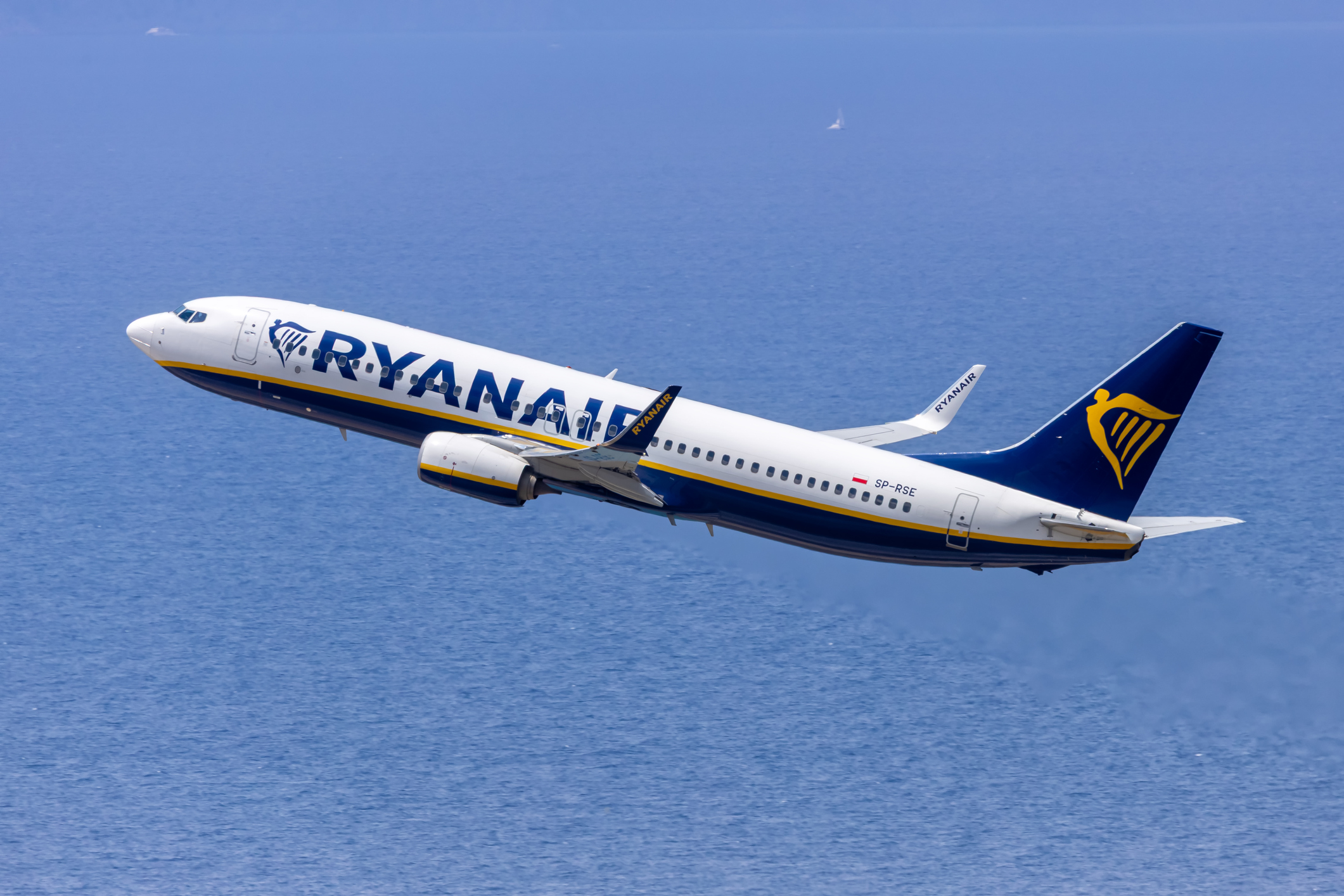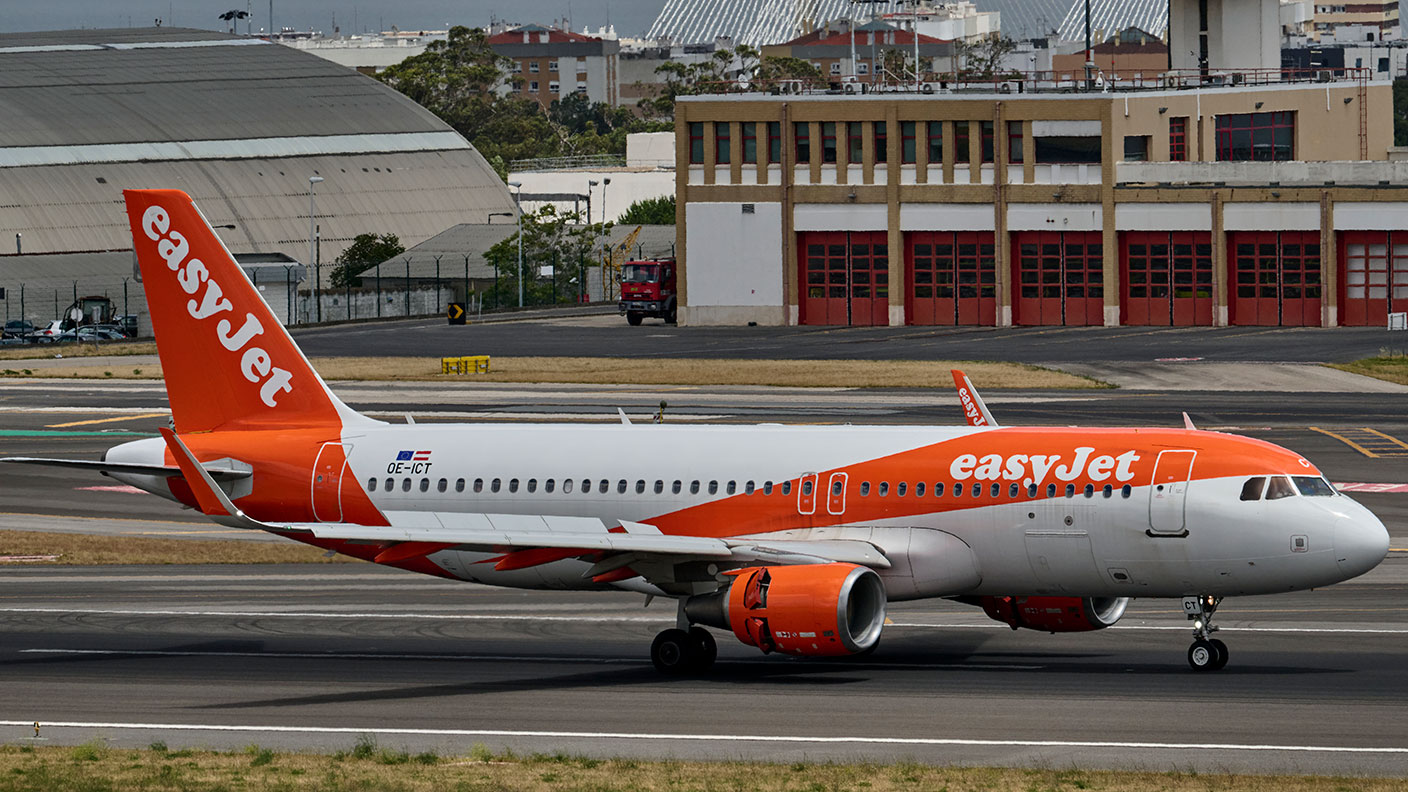Low-cost flights hit air pocket
A ferocious price war has killed off the weaklings in the airline sector. But the survivors are well placed to thrive. Chris Carter reports.

Get the latest financial news, insights and expert analysis from our award-winning MoneyWeek team, to help you understand what really matters when it comes to your finances.
You are now subscribed
Your newsletter sign-up was successful
Want to add more newsletters?

Twice daily
MoneyWeek
Get the latest financial news, insights and expert analysis from our award-winning MoneyWeek team, to help you understand what really matters when it comes to your finances.

Four times a week
Look After My Bills
Sign up to our free money-saving newsletter, filled with the latest news and expert advice to help you find the best tips and deals for managing your bills. Start saving today!

A ferocious price war has killed off the weaklings in the airline sector. But the survivors are well placed to thrive. Chris Carter reports.
The no-frills airline sector has hit major turbulence. The "ferocious" price war that tipped Alitalia (Italy's flag carrier), Monarch (Britain's fifth-biggest airline) and Air Berlin (Europe's No. 10) into insolvency has also dragged easyJet into the fray, says Robert Lea in The Times.
Revenues per seat at the low-cost airline had fallen by 3.7% over the summer, "indicating that it had cut fares to keep flights flying close to full". Profits for the year to the end of September are expected to have fallen by 17%, and will be 40% lower than two years ago. Terrorism in north Africa and Turkey hasn't helped matters, while the fall in the pound has cost easyJet £100m. Outgoing chief executive Carolyn McCall "will spend her last three months in charge trying to redraw easyJet's map".
MoneyWeek
Subscribe to MoneyWeek today and get your first six magazine issues absolutely FREE

Sign up to Money Morning
Don't miss the latest investment and personal finances news, market analysis, plus money-saving tips with our free twice-daily newsletter
Don't miss the latest investment and personal finances news, market analysis, plus money-saving tips with our free twice-daily newsletter
On the plus side, easyJet will be enjoying plenty of schadenfreude over rival Ryanair's woes. Michael O'Leary, the pugnacious chief executive, sent a "grovelling" letter to pilots last week to stop them leaving for rivals such as Norwegian Air Shuttle, notes Bloomberg Gadfly's Chris Bryant. "That O'Leary felt compelled to turn on the charm suggests his labour relations are badly bruised."
Still, "one might expect shareholders to cheer such a gesture". They didn't. The share price promptly fell by almost 2%. "Repairing the damage will be expensive, even if the company's fat profit margins will cope." The problem is, as one pilot told the BBC, the airline is "run like a communist regime. It's dictated from the top and you are just expected to get on with it."
Europe's problem is that there are just too many airlines relative to the size of the market, says Annabel Fenwick Elliott in The Daily Telegraph. In the US five major airlines "provide some 80% plus of scheduled capacity and that may be where the European market will head over time".
But it's not all gloom. The demise of Alitalia and Monarch is a "reminder that airlines are fragile constructs" with thin margins and exposure to shifts in the economy, says Fenwick Elliot. But it also means that easyJet and Ryanair will face less competition. And they will keep benefiting from a structural tailwind, as Aristofanis Papadatos points out on SeekingAlpha. More people are flying than ever before as living standards constantly improve. Global air traffic reached a five-year high early this year. Moreover, estimates the International Air Transport Association, it will expand by 3.7% a year until 2035.
HSBC plays it safe with new CEO
HSBC is keeping mum. But the word on Threadneedle Street is that the high-street lender has asked the Bank of England for permission to install John Flint as its new CEO, The Sunday Times revealed, citing unnamed "City sources". He would take over from Stuart Gulliver, who has headed HSBC for almost seven years and is heading for retirement.
Replacing Gulliver with Flint who joined HSBC back in 1989 and now heads its retail-banking and wealth-management operations would continue a long-held tradition of promoting from within, note John Ainger and Stephen Morris on Bloomberg. Every one of its previous 21 leaders spanning over 150 years have been drawn from its own ranks. "[Flint's] top concerns will likely include improving the bank's technology, entailing more job cuts; continuing Gulliver's pivot to Asia' and $100bn investment in China's Pearl River Delta region; and growing the asset-management unit."
"Such lack of radical change is hardly galling," says Christopher Thompson on Breakingviews. Gulliver has left the bank with a "solid" capital ratio of 14.7% at the end of June, "well in excess of its 13% target, underpinning dividends". HSBC's shares have also bettered the STOXX Europe 600 Banks index by a "whopping" 45% over the last two years. Now, shareholders in Europe's biggest bank by assets want more of the same. And who could blame them?
City talk
"Chat to any City high-ups and the conversation always eventually turns to the question: how long do you give Jes Staley?", says Jim Armitage in the Evening Standard. The longevity of the Barclay's CEO, a post he has held for two years, is the "debate de nos jours". The Financial Times "has given the issue an acre of pink space", citing plenty of frustrated shareholders.
Yet he hasn't done badly at all. Staley "took down the Do Not Resuscitate' notice" at the troubled investment bank when he joined, and "turned the oxygen back on", making big hires and investing in technology. Yes, there's still plenty to do, but impatient observers should cut him some slack.
Moya Greene's credibility is on the line, says Nils Pratley in The Guardian. The Royal Mail boss agreed an "agenda for growth" deal with the union when the service was privatised in 2013 pledging to protect jobs in return for five weeks of arbitration before any walkouts could take place.
So Greene needs to be able to show that "the wording was legally watertight" now that the matter has come to court. Similarly, union leaders, who plan to strike next week and insist that mediation has already happened, will look foolish if their argument fails. Whatever the High Court decides, the loser will be on the back foot.
Tesla boss and founder Elon Musk is a risk-taker, says Charley Grant in The Wall Street Journal a quality that has endeared him to analysts and investors alike. But there is a fine line between "setting aggressive goals" and "misleading shareholders" and the company is inching closer to that line.
It turns out that only three of the "highly anticipated" Model 3 electric cars were being made per day in the third quarter. So Musk must have known he was never going to hit the target of 1,500 by the end of September a shortfall the company put down to "production bottlenecks".
Get the latest financial news, insights and expert analysis from our award-winning MoneyWeek team, to help you understand what really matters when it comes to your finances.

-
 Could Chinese investments race ahead in the Year of the Horse?
Could Chinese investments race ahead in the Year of the Horse?As the Year of the Horse begins, we highlight the trends and sectors that could make great Chinese investments for the coming Lunar year
-
 Can mining stocks deliver golden gains?
Can mining stocks deliver golden gains?With gold and silver prices having outperformed the stock markets last year, mining stocks can be an effective, if volatile, means of gaining exposure
-
 Leading European companies offer long-term growth prospects
Leading European companies offer long-term growth prospectsOpinion Alexander Darwall, lead portfolio manager, European Opportunities Trust, picks three European companies where he'd put his money
-
 Avoid easyJet shares – there are better airlines to invest in
Avoid easyJet shares – there are better airlines to invest inTips EasyJet used to be one of Europe’s most impressive airlines. But now it is facing challenges on all fronts and losing out to the competition. Rupert Hargreaves explains why you shouldn’t buy easyJet shares.
-
 Easyjet profits fall as it bids to become the world’s first “zero carbon” airline
Easyjet profits fall as it bids to become the world’s first “zero carbon” airlineFeatures EasyJet reported a fall in profits today, after a “difficult” year, but is hoping to become the first “zero carbon” airline by offsetting its carbon emissions at a cost of £25m a year.
-
 What does Lufthansa’s profit warning mean for airline stocks?
What does Lufthansa’s profit warning mean for airline stocks?Features German airline Lufthansa issued a profit warning this morning. And it’s not the only airline finding things tough. But are there any bargains in the sector?
-
 Ryanair share price struggles to regain altitude
Ryanair share price struggles to regain altitudeFeatures Ever since Ryanair’s dispute with the pilots’ union in September 2017, the airline has been struggling, with the share price down by half from its peak.
-
 It’s time for Ryanair to grow up
It’s time for Ryanair to grow upOpinion As a young upstart airline, a combative approach was just what Ryanair needed. Now it needs to mellow, says Matthew Lynn.
-
 Ryanair loses altitude
Ryanair loses altitudeFeatures Europe’s biggest budget airline will profit from rivals’ problems this winter. But it has also been making its own life difficult. Marina Gerner reports.
-
EasyJet hits turbulence
Features The no-frills airline was a rare success in a cut-throat business, but headwinds are building fast, says Ben Judge.